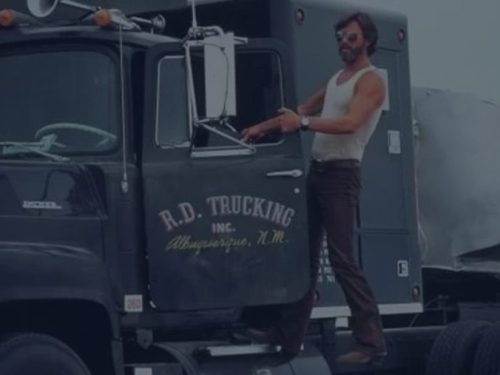Lawmaker Pledges to Block Speed Restriction Devices on Trucks
WASHINGTON — A preemptive move against a proposed truck speed limiter rule set to be published this year has been made by an Oklahoma legislator, who introduced a bill to halt its implementation.
The DRIVE Act (Deregulating Restrictions on Interstate Vehicles and Eighteen-Wheelers), presented in the U.S. House on Tuesday by Republican Josh Brecheen, aims to prevent the Federal Motor Carrier Safety Administration from enforcing any rule requiring vehicles weighing over 26,000 pounds and involved in interstate commerce to have a speed limiting device set at a maximum speed, as stated in a release from Brecheen. The bill’s draft has not been released yet.
The FMCSA indicated in a notice of intent last year that it plans to propose that commercial trucks involved in interstate commerce with a GVWR or GVW of 26,001 pounds or more, whichever is greater, be fitted with an electronic engine control unit that governs an as-yet-undetermined maximum speed. This notice received over 15,000 comments, mostly from drivers or small carriers who strongly opposed the idea.
Brecheen, a fourth-generation rancher and ex-trucking company owner, contends that the rule would negatively affect both the agricultural and trucking sectors, as it would encompass livestock trailer/truck combinations and grain trucks.
Brecheen argues that this overreaching rule by the Biden Administration could have detrimental effects on the agricultural and trucking industries. He draws from his own experience of driving a semi-truck and hauling livestock, emphasizing the importance of following state-set traffic flow for safety rather than imposing a one-size-fits-all speed limit determined by a Washington, D.C., bureaucrat.
He cites a 2005 study that showed a 227% increase in vehicle interactions when traveling 10 mph below the posted speed limit compared to vehicles moving at traffic speed. Todd Spencer, president of the Owner-Operator Independent Drivers Association, which supports Brecheen’s bill, claims that such interactions lead to more accidents.
Brecheen’s bill has received backing from several organizations, including the National Association of Small Trucking Companies, Western States Trucking Association, American Farm Bureau Federation, National Cattlemen’s Beef Association, United States Cattlemen’s Association, Livestock Marketing Association, and the Towing and Recovery Association of America.
The American Trucking Association (ATA) initially supported a fixed maximum speed of 65 mph for all Class 7 and 8 trucks with electronic speed governors produced after 1992 but has since revised its policy to support a maximum of 70 mph for such trucks, taking into account the latest safety technology.
ATA has responded to Brecheen’s bill by suggesting that the U.S. Department of Transportation conduct a recurring five-year review of speed governing regulations to ensure they align with current technologies. ATA Executive Vice President of Advocacy Bill Sullivan claims that efforts to block the development of safety policies are misguided, will lead to more severe accidents, and that the bill will never become law, even if it passes the House.







